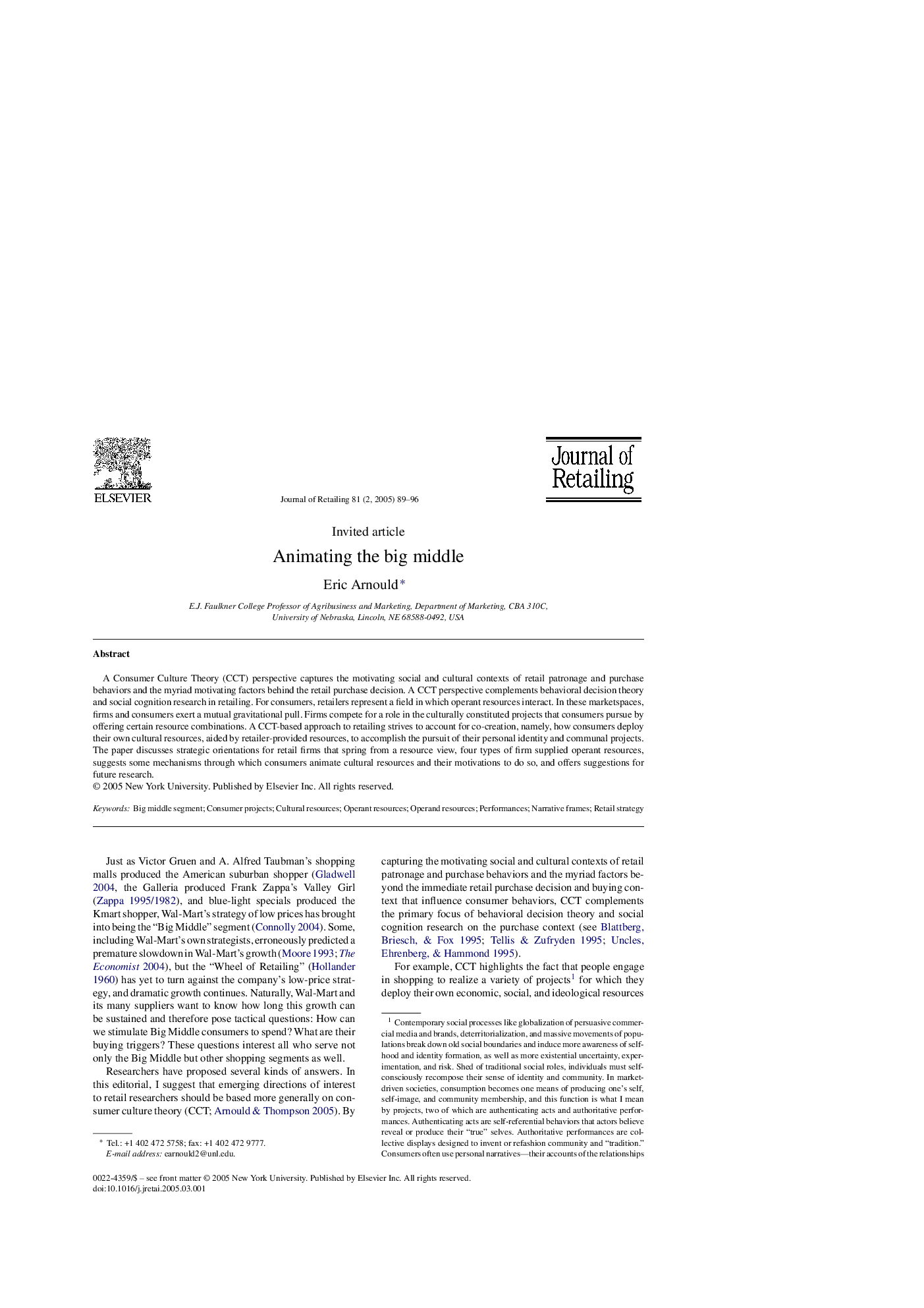| Article ID | Journal | Published Year | Pages | File Type |
|---|---|---|---|---|
| 10439003 | Journal of Retailing | 2005 | 8 Pages |
Abstract
A Consumer Culture Theory (CCT) perspective captures the motivating social and cultural contexts of retail patronage and purchase behaviors and the myriad motivating factors behind the retail purchase decision. A CCT perspective complements behavioral decision theory and social cognition research in retailing. For consumers, retailers represent a field in which operant resources interact. In these marketspaces, firms and consumers exert a mutual gravitational pull. Firms compete for a role in the culturally constituted projects that consumers pursue by offering certain resource combinations. A CCT-based approach to retailing strives to account for co-creation, namely, how consumers deploy their own cultural resources, aided by retailer-provided resources, to accomplish the pursuit of their personal identity and communal projects. The paper discusses strategic orientations for retail firms that spring from a resource view, four types of firm supplied operant resources, suggests some mechanisms through which consumers animate cultural resources and their motivations to do so, and offers suggestions for future research.
Related Topics
Social Sciences and Humanities
Business, Management and Accounting
Marketing
Authors
Eric Arnould,
